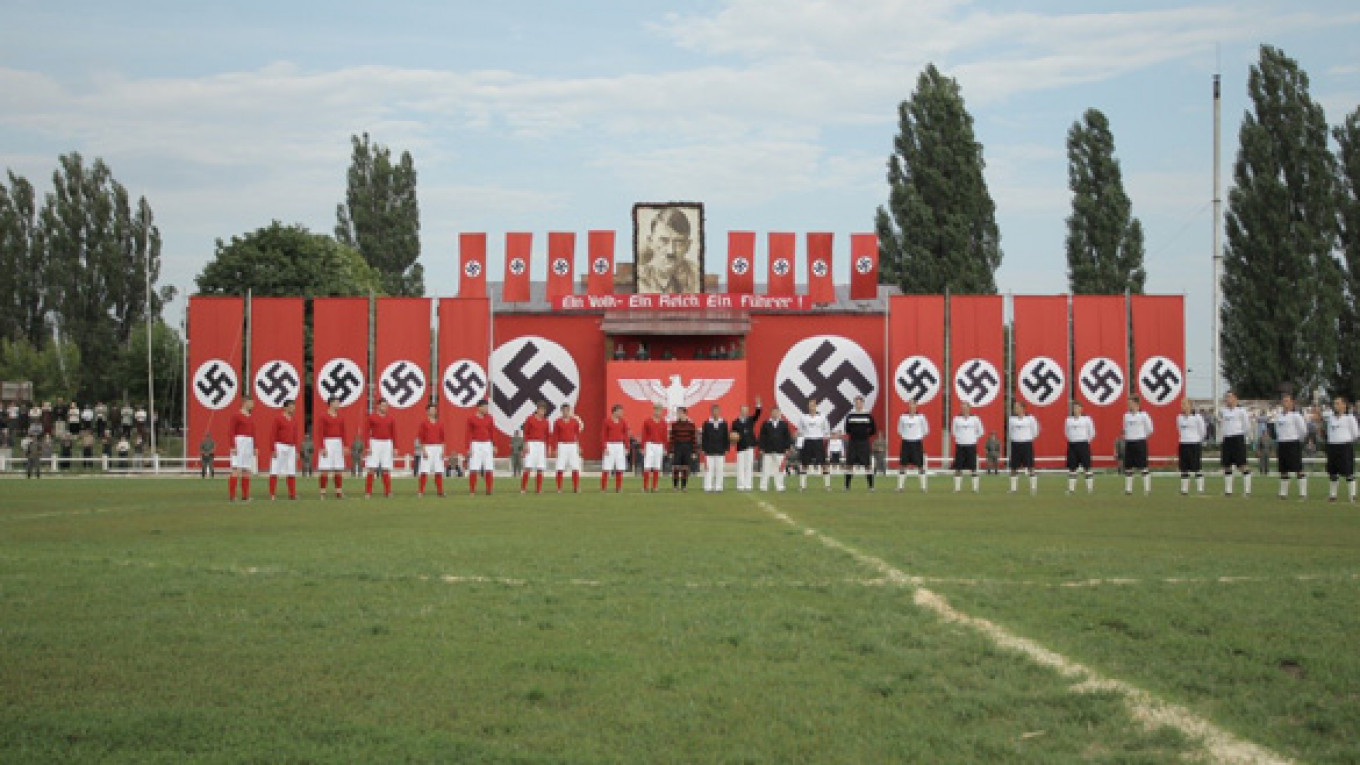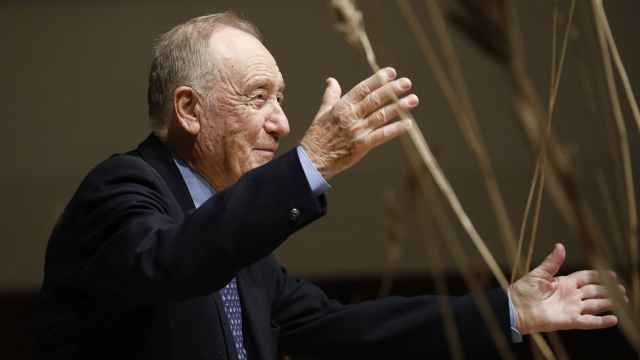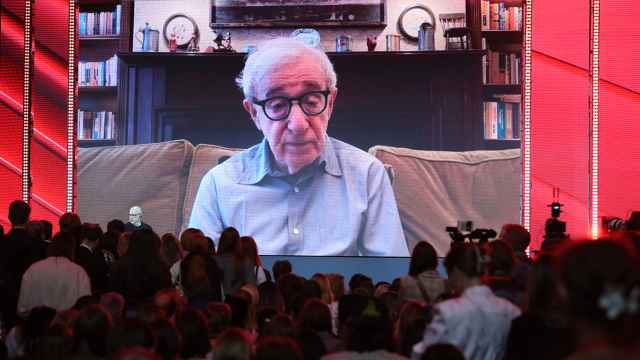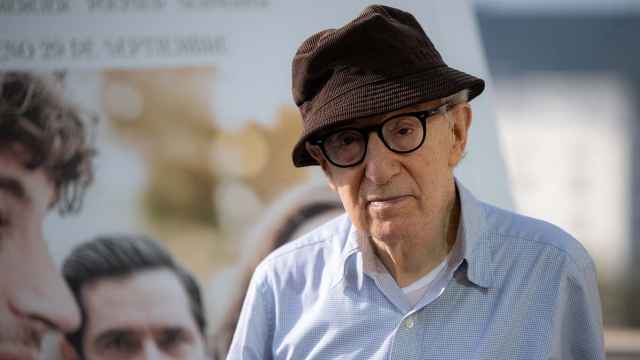Ukraine will co-host the continent's biggest football tournament, the European Championships, in a few days time, just as a new Russian film has stirred up controversy.
Actor Sergei Bezrukov recently played legendary bard Vladimir Vysotsky, but in "Match" he plays a goalkeeper who faced up against Nazi officers over the course of 90 minutes and won.
"Let's show these super-humans!" Bezrukov's character Nikolai Ranevich says before the start of the game.
The plot of the film, released last month, is based on the legendary story of Ukrainian football players who took part in the "Match of Death" during World War II.
The game has gone down in Ukrainian lore as a battle between Ukrainian pride and Nazi savagery. Ordered to lose the game for fear of death, the team refuses, wins the game and then all the members lose their lives.
What is known for certain is that there was in fact a match between a team of Luftwaffe Air Force pilots and the Kiev team Start in August 1942. The Ukrainian side did win and some of the players were later arrested; a number of them were later executed.
The character Ranevich is based on the character of Dynamo Kiev goalkeeper Nikolay Trusevich who was later executed in a Nazi camp in Ukraine.
Taking on the football game set in Nazi-occupied Kiev has reopened old wounds and become a subject of controversy between Russia and Ukraine.
In Ukraine, the depiction of locals collaborating with the Nazi occupiers has been called anti-Ukrainian. Kiev residents are shown greeting German troops with the traditional gift of bread and salt.
Ukrainian film officials released the film only for those 18 years and older and after a long delay.
Russian critics have not been overly kind either.
"It looks like a beautiful story, but an invented one," said Alexei Lebedev, sports editor for Moskovsky Komsomolets, "They should have made it for children."
The story of the game was also used as a very loose base for the film "Escape to Victory" starring Michael Caine, Max von Sydow and Sylvester Stallone, as well as a host of football players including Pele. That film had Allied prisoners of war and as the title suggests, those players actually escaped.
The term "match of death" was first used by Soviet novelist and avid football fan Lev Kassil in an article for Izvestia newspaper in 1943. The story was later used to make the film "The Third Time" in 1964, which only added to the myth of the event.
Since the collapse of the Soviet Union, the match has been dissected numerous times, with many historians now saying that the match did take place but the football players were shot later for reasons unconnected to the match.
These findings were backed by German prosecutors in 2005 when an inquiry was opened into the death of the Ukrainian football players and found no connections to the match.
A Message from The Moscow Times:
Dear readers,
We are facing unprecedented challenges. Russia's Prosecutor General's Office has designated The Moscow Times as an "undesirable" organization, criminalizing our work and putting our staff at risk of prosecution. This follows our earlier unjust labeling as a "foreign agent."
These actions are direct attempts to silence independent journalism in Russia. The authorities claim our work "discredits the decisions of the Russian leadership." We see things differently: we strive to provide accurate, unbiased reporting on Russia.
We, the journalists of The Moscow Times, refuse to be silenced. But to continue our work, we need your help.
Your support, no matter how small, makes a world of difference. If you can, please support us monthly starting from just $2. It's quick to set up, and every contribution makes a significant impact.
By supporting The Moscow Times, you're defending open, independent journalism in the face of repression. Thank you for standing with us.
Remind me later.






